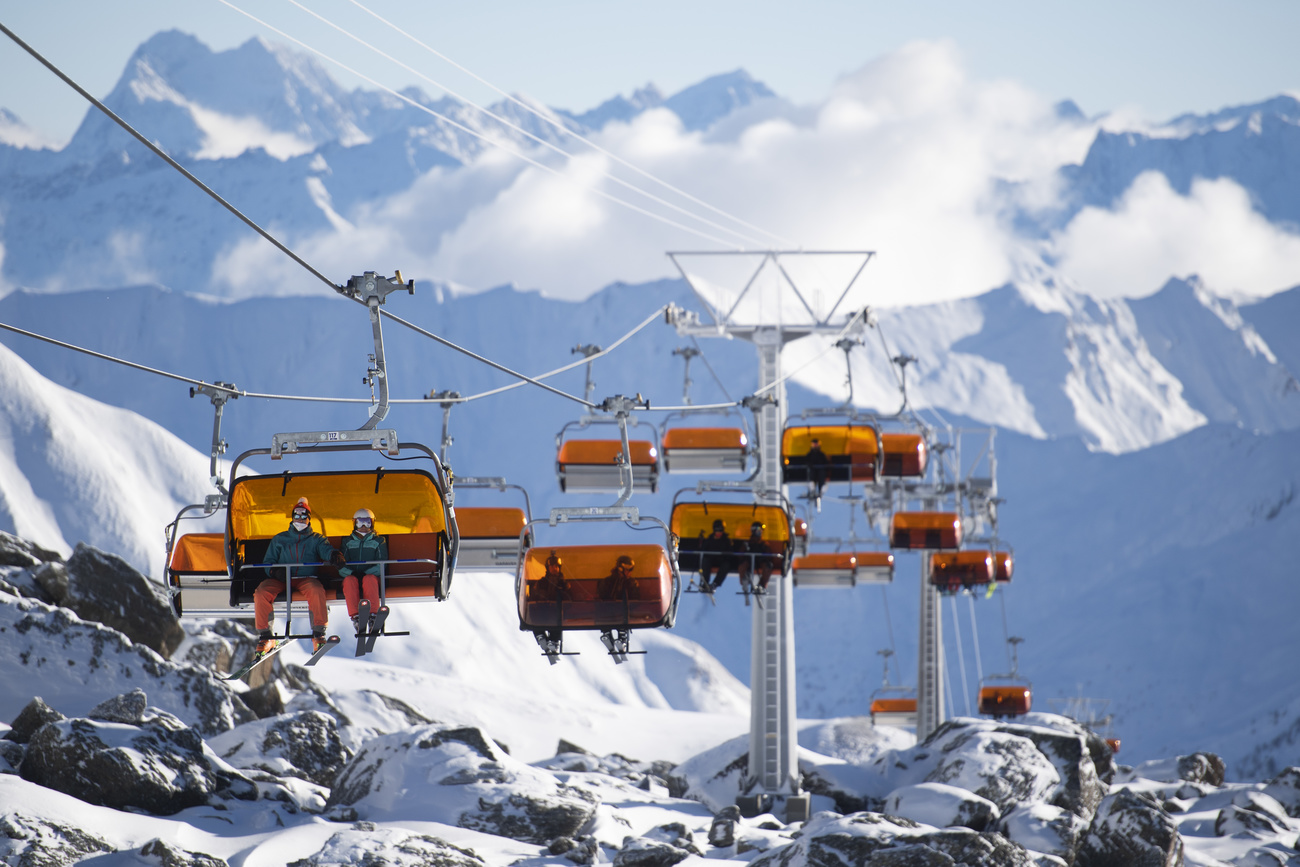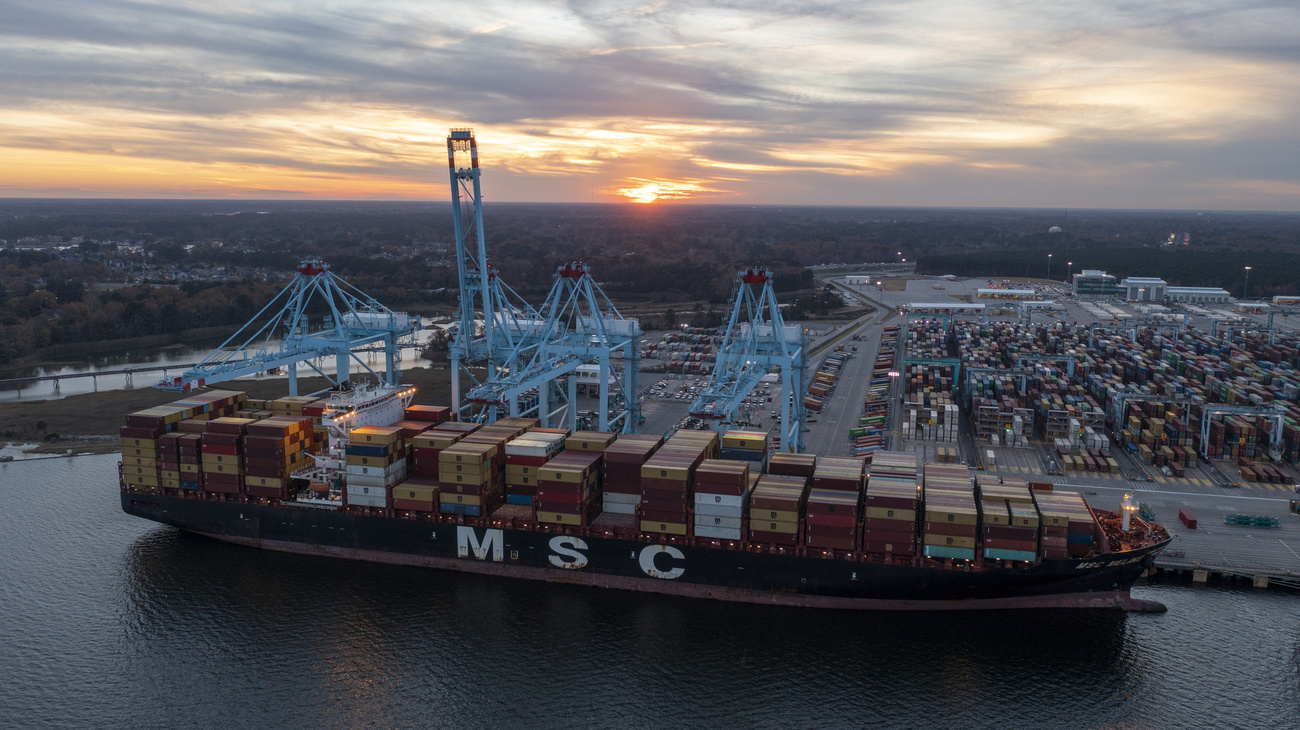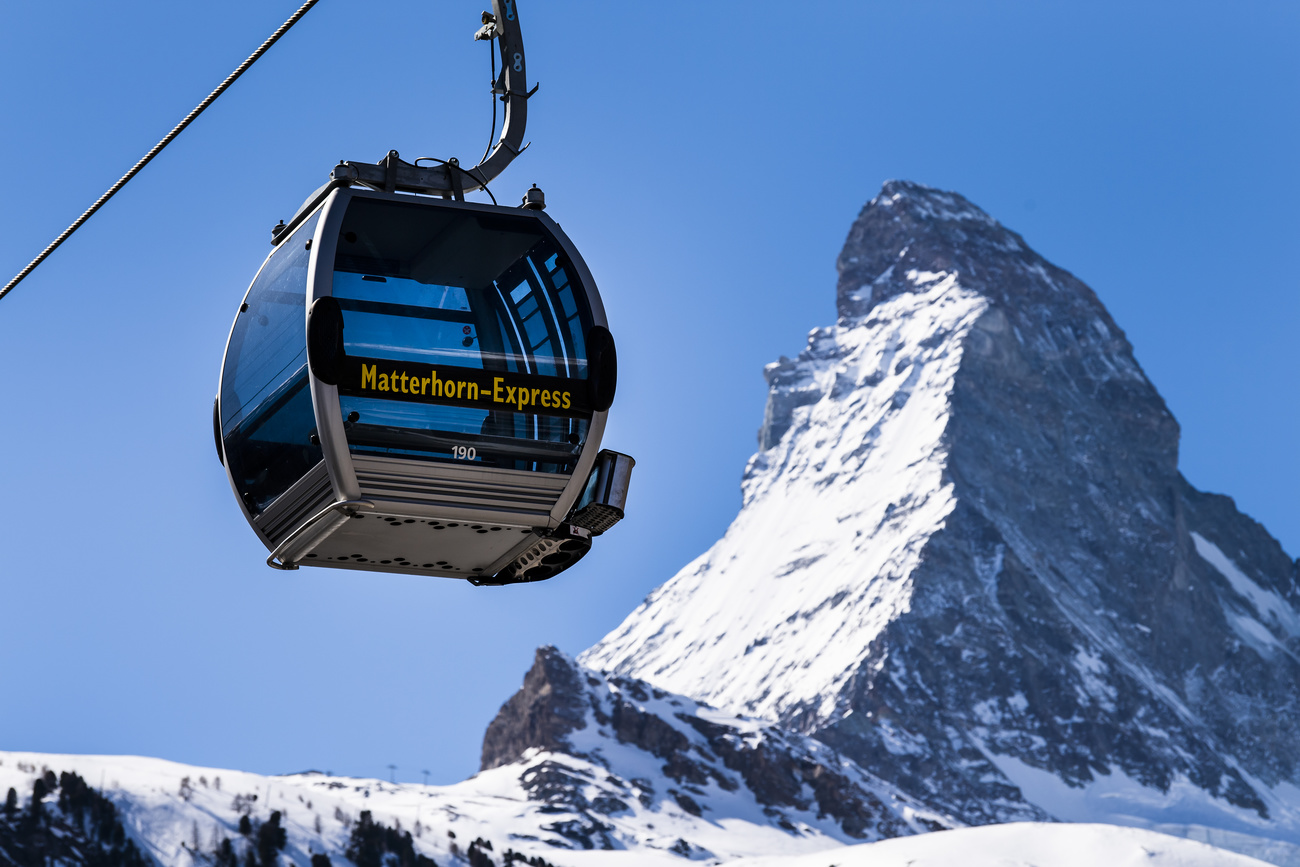
Switzerland Today
Greetings from Bern!
Will Swiss ski resorts have to shut over winter because of the energy crisis? It’s not out of the question, according to one politician. You’d forgive some people in the tourism industry, staggering bloodied to their feet after the Covid pandemic, for thinking about throwing in the towel. Here are the latest news and stories from Switzerland on Monday.

In the news: The Aponte family in Geneva has become the richest in Switzerland, with a fortune estimated at as much as $100 billion (CHF100.2 billion).
- The Italian family owns the Mediterranean Shipping company (MSC), which has the largest fleet of container ships in the world. When Covid-19 hit in early 2020, some shipping companies feared global trade would collapse and put part of their fleets in the dock, but the opposite happened. People confined at home went on an online spending spree, and shipping prices soared. MSC, whose huge ships carry all kinds of things all over the world, profited.
- Switzerland now has four restaurants with three Michelin stars. MemoriesExternal link in Bad Ragaz, eastern Switzerland, has joined this very exclusive clubExternal link alongside Restaurant de l’Hôtel de Ville in Crissier, the Cheval Blanc in Basel and Schloss Schauenstein in Fürstenau. “It’s a dream come true,” said head chef Sven Wassmer. Diners can choose a seven-, nine- or 11-course menu, which will currently set them back CHF229-CHF329 ($230-$330).
- Credit Suisse has agreed to pay $495 million to settle a case brought against it in the United States – the latest pay-out related to past blunders that have battered the Swiss bank’s reputation. Credit Suisse said it would make the pay-out to settle claims brought by the New Jersey Attorney General related to the bank’s residential mortgage-backed security (RMBS) business before 2008.

Will Swiss ski resorts have to shut over winter because of the energy crisis? “In the event of a crisis, anything can happen,” warns the finance minister of a mountain canton.
As the energy shortage looms, Christophe Darbellay, head of the Department of Economy and Education for canton Valais, says he is worried about the ski resorts and accuses the government of being slow to issue any guidance. “It’s not really telling us what it intends to do in the event of a shortage,” he lamentedExternal link. Valais is home to resorts such as Zermatt, Verbier, Saas-Fee and Crans-Montana.
In Darbellay’s opinion, closing the stations is not out of the question. “In the event of a crisis, anything can happen. But we will fight to the bitter end to prevent the government from cutting off oxygen to the Alpine regions,” he said. Bern must not consider ski resorts as “mere leisure objects, like a private spa or Christmas lights”, he continued. “This would be a serious mistake, because ski resorts are the vital economic activity for all mountain regions.”
Darbellay says he is not against a reduction in the electricity consumption of the ski lifts if this can avoid closures. It’s possible to save 5% of consumption, and the resorts are currently working on this, he points out. But “from 10% it hurts and 15% is just not possible”, he said. As for the consequences of the energy crisis on the price of day passes, he has better news: ski resorts have often secured their electricity purchases with long-term contracts on the open market. The impact on the price of a day’s skiing should therefore remain “reasonable”, he predicted.
Building large solar parks in high-mountain regions is arguably an effective way to produce more power in winter and accelerate the energy transition. But it remains controversial in Switzerland, where environmental groups have contested planned installations.
Research shows that putting solar panels on mountaintops in the Swiss Alps could generate at least 16 terawatt-hours (TWh) of electricity a year, or almost half of the solar power the authorities aim to produce annually by 2050. Large mountain solar projects exist in some regions in China, and small solar parks can be found in the mountains in France and Austria. But big installations are currently rare in the Swiss Alps. Panels are typically fitted to existing infrastructure such as mountain huts, ski lifts or dams.
The Alpine country currently gets 6% of its electricity from the sun. Yet the climate crisis and urgency surrounding winter energy shortages are causing a fundamental rethink. This autumn a handful of parliamentarians led a solar offensive to simplify and speed up the construction of Alpine solar systems. My colleague Simon Bradley spoke to scientists, mountain residents and environmentalists, who are having to balance their support for renewable energy sources with their desire to keep the mountains unspoilt.
More

In compliance with the JTI standards
More: SWI swissinfo.ch certified by the Journalism Trust Initiative

